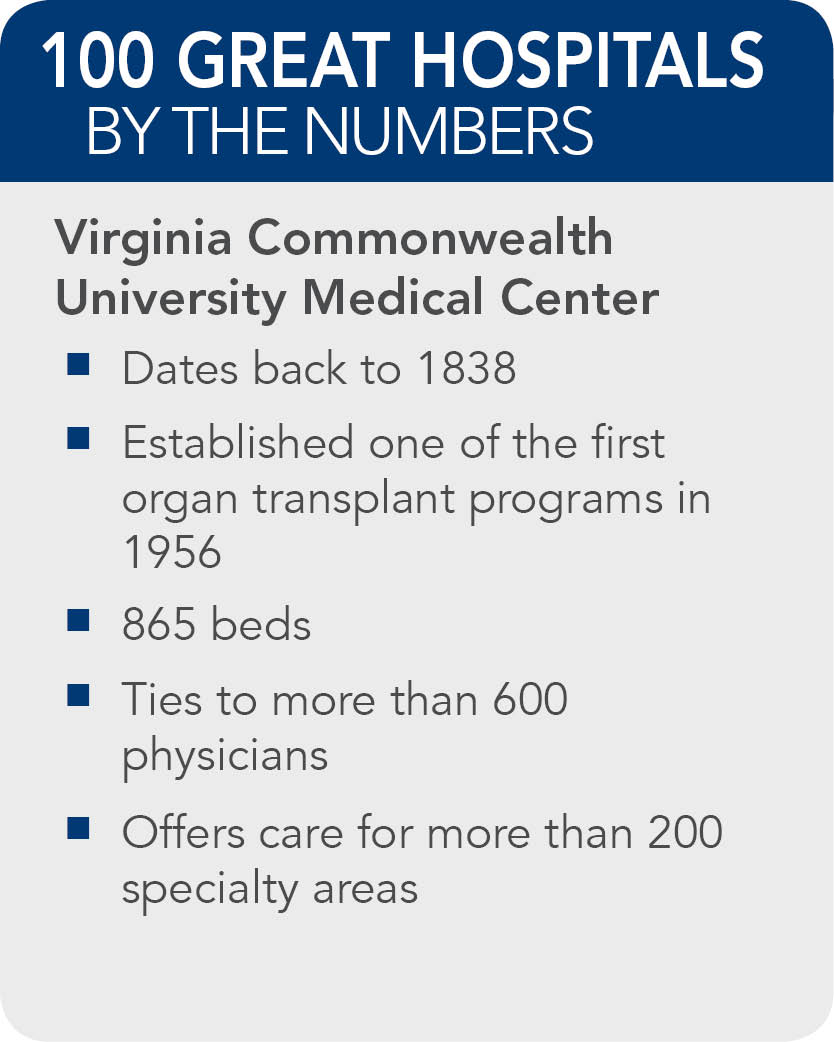Virginia Commonwealth University Medical Center (Richmond, Va.). Virginia Commonwealth University Medical Center has a rich place in American history, as it was affiliated with the only Southern medical school to graduate students during the Civil War. It continues to further the health of its patients, and the United States Armed Forces, today.
 Virginia Commonwealth University Medical Center's beginnings are intertwined with the Medical College of Virginia — the only Southern medical school to graduate students every single year of the Civil War. In 1956, MCV established one of the nation's first programs in solid organ transplantation. Since then, the hospital's Hume-Lee Transplant Center has hosted many state firsts, including Virginia's first kidney transplant and liver transplant.
Virginia Commonwealth University Medical Center's beginnings are intertwined with the Medical College of Virginia — the only Southern medical school to graduate students every single year of the Civil War. In 1956, MCV established one of the nation's first programs in solid organ transplantation. Since then, the hospital's Hume-Lee Transplant Center has hosted many state firsts, including Virginia's first kidney transplant and liver transplant.
The Medical College of Virginia merged with the Richmond Professional Institute in 1968 to form Virginia Commonwealth University. Today, the five-hospital, 865-bed medical center is Magnet-designated for nursing excellence and includes the region's only Level I trauma center. More recently, U.S. News & World Report ranked VCU Medical Center as the No. 1 hospital in Virginia in 2013-14, with spots as one of the top 50 hospitals in the country for nephrology and orthopedics.
Along with its patient care and clinical excellence, VCU Medical Center is making strides in federal research and initiatives to improve the health of men and women in the U.S. Armed Forces. For instance, VCU received a $62 million federal grant last summer to oversee a national research consortium of universities, hospitals and clinics that will study what happens to service members and veterans who suffer mild traumatic brain injuries or concussions. VCU Medical Center is also one of only three civilian institutions in the country to participate in a military program to train special operations combat medics, who provide care for wounded members of the military for extended amounts of time.

 |
 |


